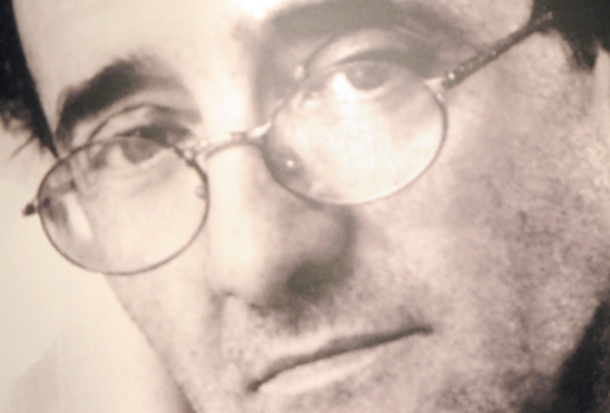‘Now I am a mother and a married woman, but not long ago I led a life of crime,’ begins this really very short book (assisted here, in its lumpen-ness, by the ingenious placement of two or three blank pages in between each of its 16 very short chapters). But it is not something scratched together posthumously from Roberto Bolaño’s papers, or resurrected out of early-career obscurity (as valuable as those kinds of books, appearing in English in recent years, have also been). Written near the end of his life, this was the last of his books that Bolaño saw into print — it bears, in this free-standing form, however tiny, the author’s definitive executive seal. And it offers, if far from the deepest example, probably the easiest means yet of enjoying his electromagnetic style in its fullest maturity.
The scene is Rome, at some unspecified time towards the end of the 20th century. A cry of ‘Fascism or barbarism!’ is occasionally heard from passing cars. ‘Economic conditions were deteriorating…. Something was wrong in Europe or Italy, I think. Or Rome. Or our neighbourhood.’ The narrator and her brother were suddenly orphaned as teenagers as a result of a car crash. ‘Somehow that justified everything.’ But the ‘everything’ in question, the ‘life of crime’, of course, doesn’t materialise according to expectation. The convention of the juvenile crime spree is no sooner invoked than it gives way to Bolaño’s usual mixture of anticlimax, absurd stasis, silence and psychological non sequitur, lit up by hyperbolic lightning flashes of sinister and tragic imagery. They each get menial jobs and otherwise watch TV:
TV and videos play an important role in this story. Even today, when I turn on the TV, I seem to get a glimpse of my criminal younger self, but the vision doesn’t last long, no longer than the time it takes the TV to fully come on.
The brother begins bringing home X-rated movies, which they watch together in a detached, scientific spirit. Then he brings home, to stay with them, two almost mute men who look like twins, the Bolognan (a typical play on the author’s name) and the Libyan (the usual sidekick). They all watch TV together. Sex in Bolaño’s world, like violence, is something that usually happens without any warning and often without leaving any intelligible emotional imprint on the characters afterwards. The two men don’t ‘try anything’ with the girl, and, almost as if for that reason, she starts sleeping with both. ‘I’d rent two movies at once’ is the metaphor at play:
I was omnivorous. I liked romance (which almost always made me laugh), classic horror, gore, psychological horror, crime horror, military horror… I studied the video cases as if they were books.
That these characters, unusually for Bolaño, live without literature is probably the truest intended sense of lumpen. (Instead, the affinity between Bolaño’s work and the films of Quentin Tarantino and Robert Rodriguez has perhaps never been more apparent.)
Eventually the four commit to a criminal scheme that involves showing up at the house of a retired bodybuilder and actor who once played the figure of Maciste, the guffawing strongman from Italian peplum cinema, but is now a bloated recluse. But this is more an erotic tale, concerning ambiguous exploitation, than one of crime. Whatever else the brother and the two men (if they even exist) are doing is revealed to or by the narrator only in weird visions of the three sitting in bus stations, waiting, ‘bathed in a red glow that seemed to emanate from another planet’.
This is the great poetry with which Roberto Bolaño draws his characters: names, origins, motivations unknown — just the particular sad colour of the light as it hits their faces on the screen of memory.





Comments